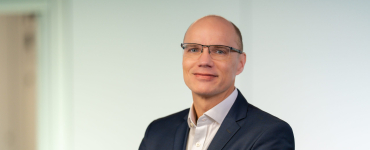Christian Schmitz, Director OpenSource at the German cloud provider plusserver, explains which factors can influence data sovereignty in an eco interview. He also talks about the potential of open source solutions and Gaia-X.
Do companies in Germany still have sovereignty over their data?
To answer this question, one must be aware in the first place of what constitutes data sovereignty. Many companies only think of the storage location of the data and the extent to which they can control it. This quickly leads to a comparison between the local data centre and the (public) cloud. But that does not go far enough. The decisive factor for data sovereignty is that data and workloads can be moved about sovereignly. This power of disposal is not only limited by the storage location but also by the nature of the software used, the costs of the solutions and contractual components. All of these aspects converge in a strategy for sovereign data. And, so far, this can be found in very few companies. In a recent study commissioned by plusserver, IDC came to the conclusion that only 11 per cent of companies have comprehensively operationalised data sovereignty. This leads to the assumption that companies in Germany are not as much in control of their data as they would like to be.
How can open source solutions increase digital sovereignty?
Open source solutions definitely have the potential to increase digital sovereignty in companies. Transparency and traceability in data processing – both in the operating system and in the applications – make a decisive contribution to digital sovereignty, and open source makes this possible through generally available and standardised technology. But not only that: technological and operational sovereignty – both of which should be considered more in the context of digital sovereignty – also benefit from open source. If, for example, the service provider – i.e., the local cloud provider – relies on open source, this also makes it easier to realise transparent operations, which in turn benefits the customer and gives the provider control or certainty.
What are your expectations of Gaia-X in this context?
I believe that the efforts within the framework of Gaia-X are laying the foundation for digital sovereignty in Germany. plusserver is a founding member of Gaia-X and, with its pluscloud open, was the first company to productively implement an open source cloud based entirely on the Sovereign Cloud Stack (SCS). This commitment shows our confidence in the European project. We are convinced that Gaia-X will sustainably strengthen the position of local and regional cloud providers and data centre operators.
If you would like to learn more about these exciting topics, you should not miss Christian Schmitz’s keynote and panel participation at this year’s Data Center Expert Summit (German-language) on 14 and 15 June. There he will share more of his expertise on various factors, including the digital markets of tomorrow and the topic of data sovereignty.
More information about the Data Center Expert Summit is available here.




